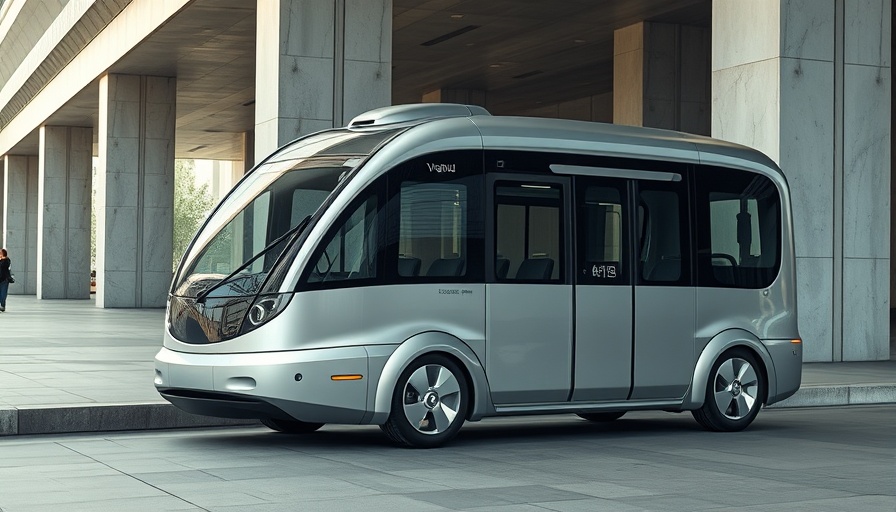
Lyft's Ambitious Plans for Autonomous Shuttles
In a significant move towards embracing the future of transportation, Lyft has announced its plans to introduce autonomous shuttles to its network by late 2026. This initiative is part of a collaboration with the Austrian manufacturer Benteler Group, known for its innovative mobility solutions under the Holon brand. Lyft's decision to integrate these urban electric shuttles is positioned as a critical step in competing with its rival, Uber, which has been rapidly expanding its autonomous vehicle fleet.
Impact of Technology on Urban Mobility
The development of self-driving technology is not just a trend; it's revolutionizing urban transportation. Lyft's shuttles, designed without a steering wheel or pedals, can accommodate up to nine seated passengers and six standing, highlighting the shift towards more efficient, space-optimized public transport options. Similar trends are observed with Uber introducing robotaxis from various partners, including Waymo and WeRide, indicating an industry-wide pivot towards automation that promises a more seamless mobility experience.
Current Competition: Lyft vs. Uber
Lyft's announcement comes on the heels of Uber’s accelerated plans to deploy robotaxis in multiple global cities. This width of engagement across different international markets illustrates a robust competition landscape. Uber has secured partnerships with companies like Baidu and Volkswagen, further cementing its foothold in the self-driving sector. Despite Lyft being slightly behind in market penetration regarding autonomous vehicles, its strategic alliance with Benteler could position it favorably for upcoming urban expansions in the next few years.
Future Trends in Autonomous Vehicles
The shift towards autonomous vehicles signifies a larger trend towards electrification and sustainability in transport. With cities grappling with congestion and pollution, electric shuttles promise cleaner, more eco-friendly public transit options. As corporations and consumers become more environmentally conscious, the demand for sustainable solutions is expected to grow dramatically. Lyft's proactive approach to integrating electric autonomous shuttles reflects a commitment to addressing these environmental challenges head-on.
The Importance of Partnerships in Tech Innovation
Collaborations will likely shape the trajectory of the autonomous vehicle market as various companies strive to bring innovative solutions to urban transport. Lyft's partnership with Benteler is an example of how businesses can leverage each other's strengths. Mobileye, which supplies the technology for the Holon shuttles, plays a pivotal role in ensuring safety and reliability. Striking the right partnerships could differentiate leaders from followers in this fast-paced tech ecosystem.
Public Perception and Future Directions
The success of autonomous shuttles will largely depend on public acceptance. As residents express concerns about the safety and reliability of autonomous vehicles, companies must prioritize transparent communication and community engagement. Deploying shuttles in partnership with cities could enhance trust, especially if local governments and residents see tangible benefits such as reduced traffic and lower emissions. Ensuring public comfort and understanding of new technology will be crucial as Lyft and its competitors chart their paths forward.
In conclusion, Lyft's introduction of autonomous shuttles is a pivotal moment for its future and for urban mobility overall. With advanced technology shaping how people move through cities, the competitive edge must accelerate responsibly, ensuring that innovation goes hand in hand with public trust and environmental sustainability. Readers are encouraged to stay informed about these developments, as the outcomes promise to redefine not just how we travel, but the very fabric of urban life.
 Add Row
Add Row  Add
Add 



Write A Comment